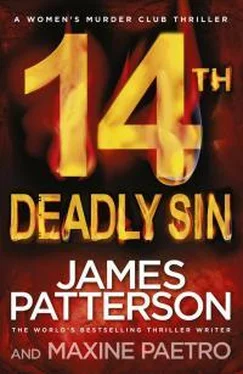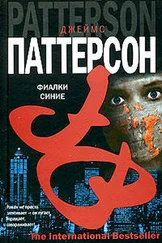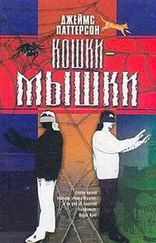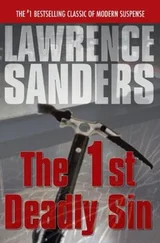Brand sat down, pulled his chair right up to Aaron-Rey, and put his hand on the back of the boy’s neck.
Brand said, “It’s safe to tell us, A-Rey. It’s now or we’re done. I have a family, and I gotta go home. Tell the truth, or the next time I see you, it will be as a witness at your execution. Your moms and pops will be crying, but I’m gonna be saying to them, ‘I told him to tell the truth, but he told me to piss off.’ Is that how you want this to go?”
Aaron-Rey picked his head up off the table.
“I can go home after?”
“Yes. What did I say? Start talking,” said Brand. “Or I’m walking out of here and going home. Unlike you.”
Aaron-Rey sighed. “Awright. I did it,” he said. “I was scared and so I shot them, awright?”
“Shot who?” said Whitney.
“A. Biggy. Duane. Dubble D.”
Aaron-Rey was crying again.
“Good man,” said Whitney.
He looked at the two-way mirror, gave a thumbs-up. Brand opened the door and uniformed officers came into the room and pulled Aaron-Rey Kordell to his feet.
Whitney and Brand high-fived and low-fived and the video went black.
Yuki submitted the transcript into evidence and returned to the counsel table.
Judge Quirk said, “Ms. Castellano, you have a witness?”
She was getting a jump on Parisi by calling two witnesses who might normally have been called by the defense. In legal terms, they were “adverse witnesses,” and she could deal with them as if she were cross-examining the opposition witnesses.
She hoped she could pull it off.
“Plaintiff calls Inspector Stanley Whitney to the stand.”
CHAPTER 70
NARCOTICS INSPECTOR STAN Whitney wore jeans, a denim shirt, and a striped tie under a navy-blue jacket. He looked very respectable and trustworthy, and the wire-rimmed glasses just frosted the cake.
He swore on the Bible to tell the whole truth and nothing but, and then he took his seat in the witness box.
Yuki spent a few minutes establishing that Whitney had been with the SFPD for eight years, the first five in uniform, the last three in Narcotics.
She asked him to describe his interview with Aaron-Rey.
Whitney said, “Well, he was like a lot of people who are pinched for committing a crime. Young, old, first-time offender or career criminal, no one sits down and says ‘I did it,’ even if you catch them standing over a body with a gun in their hand and blood all over them.”
“I see,” said Yuki. “But since this was a presumed triple homicide, why were detectives from Narcotics interrogating the subject?”
“Mr. Kordell was pulled in for running from a crack house with a gun in his hand. We’ve run into Mr. Kordell before. At first, we figured him to be a witness.”
“While you’ve run into Mr. Kordell before, you never arrested him, correct?”
“Correct.”
“And he’s never before been suspected in a crime, isn’t that true?”
“Yes.”
“So what was the context for previously running into Mr. Kordell?”
“He was a hanger-on in the neighborhood. We’d do a bust and sometimes he’d be on the scene.”
“OK. And so you’ve never known him to be violent, have you?”
“Well, he was violent when he took out three men.”
“You don’t have any proof that he shot anyone, do you, Inspector?”
“He had the murder weapon in his possession.”
“And did you test Mr. Kordell’s hands or clothing for gunpowder residue that would show that he’d actually discharged that weapon?”
“No, we did not.”
“And that’s because you knew you wouldn’t find any gunpowder residue, isn’t that right, Inspector?”
“The interview was going well. We were involved in getting answers and we were confident that we would turn up a witness to the shooting.”
Yuki was sweating under her black suit, but she thought she was giving Stan Whitney better than she was taking. She stood at a distance from the witness stand and asked, “The fact is, you didn’t turn up any witnesses to the shooting of those three men, did you?”
“No.”
“And Mr. Kordell maintained for more than fifteen straight hours that he didn’t shoot anyone, didn’t he?”
“I suppose. Yes.”
“But you didn’t accept that.”
“It seemed clear to me that he did it.”
“It’s not clear to me , Inspector. You didn’t have a witness. You didn’t have a gunshot residue test. You had no forensic evidence, and for almost sixteen hours, you didn’t have a confession, either. Isn’t that right?”
“Right.”
Yuki said, “One of the functions of a police officer is to elicit an incriminating response, isn’t that right, Inspector Whitney? Yes or no?”
“Yes.”
“And isn’t it true that a teenager, especially one with mental challenges, would try to please the authority in the room who told him he could go home? Isn’t that exactly what you told him, Inspector? Isn’t that how you obtained Mr. Kordell’s false confession?”
Parisi stood up and said, “Objection. Which of those questions does Ms. Castellano want the witness to answer?”
“I withdraw the questions, Your Honor.”
There was a low rumble in the room: people in the gallery whispering to their neighbors. The jury looked at the judge.
Judge Quirk said, “Do you want to cross-examine the witness, Mr. Parisi?”
CHAPTER 71
LEN PARISI, DA of San Francisco and co-counsel with Moorehouse and Rogers, who were paid to defend the City against lawsuits, got up from his seat and walked across the well to the witness, Inspector Stan Whitney.
“Inspector Whitney,” Parisi said. “Did you believe you had grounds to arrest Aaron-Rey Kordell for shooting the three drug dealers?”
“Absolutely.”
“Did you believe Mr. Kordell killed three men?”
“He’s innocent until proven guilty. But he was our number one suspect and I believed he did shoot them. He not only named the dead men, but he was carrying a weapon when he was arrested fleeing from the scene of the crime.”
“Did you hit Mr. Kordell in order to get him to confess?”
“No, I did not.”
“Did you physically intimidate him?”
“No.”
“Did you read him his rights?”
“Yes.”
“Then why did you get him to sign a waiver of his right to an attorney?”
“Because we just wanted to make it absolutely clear that we gave him every opportunity to have an attorney and he decided he didn’t want a lawyer. His decision.”
“And what about access to his parents?”
“There was a note on the arresting officers’ report not to call the parents.”
“Do you know why?” Parisi asked.
“He told the arresting officers he was eighteen. It’s common for kids not to want their parents to know whatever it is they’ve done.”
“Did you know Aaron-Rey’s age?”
“No. He had no priors and no ID.”
Parisi turned so that he was facing the jurors and asked, “Why do you think this was a properly obtained confession, Inspector Whitney?”
Whitney said, “Because we used the tools at our disposal. We wanted a confession, yes, but we didn’t do anything outside the law. Mr. Kordell said he killed those three scumbags, and in my opinion, that was the truth.”
“Thank you, Inspector. I have nothing else for this witness,” said Parisi.
There was some shifting in seats and some murmured conversation as Parisi returned to the defense table.
The judge said, “Quiet.” He banged his gavel, and when the room settled down, he said, “Redirect, Ms. Castellano?”
“Yes, Your Honor.”
Yuki stepped out from behind the table, passing Parisi without looking at him on the way to the witness box.
Читать дальше












